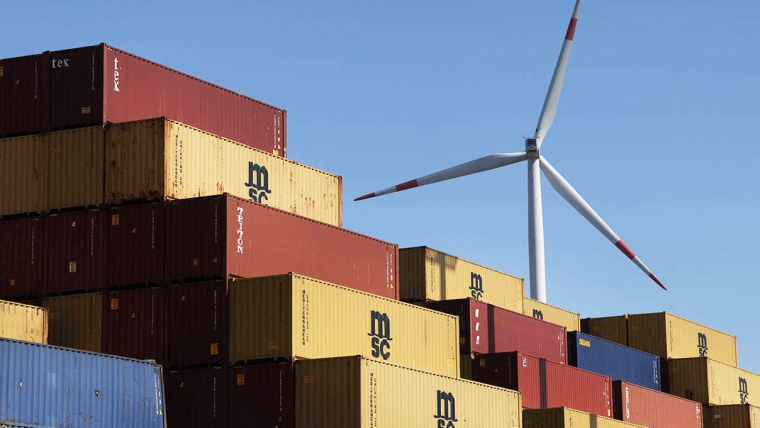
Countries around the world are confronting the same confluence of shocks. The continued breakdown of the global trading system, owing to a volatile US tariff policy, is now accompanied by the risk of disruptions to trade routes and oil production from military conflicts in the Middle East.
Moreover, concerns about the safety of dollar-denominated assets are growing, because US President Donald Trump’s “big, beautiful” spending bill is expected to erode America’s already-weak fiscal position. At the same time, the broad, geopolitically induced reshuffling of global supply chains continues, and the risk of climate and environmental breakdown has increased, especially now that the United States has withdrawn from the Paris climate agreement again.
Given that everyone will suffer from these shocks, cooperation to ameliorate them should be a priority, especially for Asia and Europe. Both regions are heavily integrated into the global trading system, and both could be affected by the loss of US fiscal credibility. Many Asian countries’ foreign-exchange reserves are heavily weighted toward dollar assets, and most of their external trade is invoiced in dollars. Similarly, climate change poses a major threat to all countries, but Europe, especially, has staked its future on the clean-energy transition.
Simply put, the recent shocks threaten the foundation on which Asian and European countries have built their economic models: open trade, which itself is based on a rules-based system. The US has gone from being a rule-setter to becoming a rule-breaker. For example, Trump’s misleadingly labeled “reciprocal tariffs” explicitly violate the most-favoured-nation (MFN) principle, which prohibits any World Trade Organisation member from maintaining different trade barriers for different countries except under a formal free-trade agreement. Trump has also violated the US commitment not to raise its tariff rates beyond WTO “bound rates” – another cornerstone of the global system.
Similarly, the US is undermining the dollar-centric system that Asian and European countries have long relied on for liquidity, trade financing, and financial risk management. The expected erosion of the US fiscal position, combined with Trump’s capricious tariff policy, has cast doubt on the dollar’s reliability.
According to the non-partisan Congressional Budget Office, the budget bill that Trump wants Congress to pass will add an estimated $2.4 trillion to the $36 trillion of existing US debt (some 100% of US GDP in 2024). And with congressional Republicans poised to raise the debt limit by another $5 trillion, US federal government debt could reach 134% of GDP by the time Trump leaves office.
Ernest Hemingway famously wrote that bankruptcy happens “gradually and then suddenly.” Because the US has never technically defaulted, the recent rise in risk premia on government bonds can be said to fall within the “gradually” phase. But investors must now consider the possibility of “suddenly” coming sooner than previously thought.
Rather than looking for separate hedging strategies, Asia and Europe would benefit more from collaboration. On the trade front, an enhanced framework between the European Union and the two big Asian trading blocs, the Regional Comprehensive Economic Partnership (RCEP) and the Comprehensive and Progressive Agreement for Trans-Pacific Partnership (CPTPP), would establish trading rules for almost the whole world – regardless of what the US does.
The key to a successful framework would be to keep all the WTO rules that have proven effective in driving trade and prosperity for the past seven decades, including the MFN principle. But Asian and European leaders should also seek to improve upon the WTO rules that are deficient, including those governing subsidies and the conduct of state-owned firms. They also would need to resuscitate the WTO dispute-settlement mechanism, perhaps tripling the number of Appellate Body judges.
On the climate front, the danger now is that other countries (such as Argentina) may follow the US in exiting the Paris agreement. To head off that possibility, Asia and Europe should pursue a common carbon-tariff framework. If the world’s two largest trading regions impose the same penalties on carbon-intensive imports, they will create a powerful incentive to stay the course on decarbonisation.
On international finance, the two regions can work toward a system that is more resilient to irresponsible behavior on the part of any single country. The goal is not to displace the US dollar as the dominant global currency, but to offer more instruments for risk management and diversification.
For example, a new stablecoin could be pegged to the euro or one of the major Asian currencies. Central banks could form a network of currency-swap agreements that are independent of the US dollar. And countries could work toward a more robust multilateral debt-relief framework for low-income countries, building on cooperation among the European Investment Bank, the Asian Development Bank, the Asian Infrastructure Investment Bank, the African Development Bank, and the Paris Club of sovereign creditors.
None of these solutions will be easy to achieve, of course, given the tensions between countries within each regional bloc regarding a variety of issues. Cooperation would require compartmentalisation, with governments focusing squarely on providing global public goods. As challenging as this might seem, the alternative will be far costlier to Asia and Europe – and to the rest of the world.
Shang-Jin Wei, a former chief economist at the Asian Development Bank, is Professor of Finance and Economics at Columbia Business School and Columbia University’s School of International and Public Affairs. Copyright: Project Syndicate, 2025, published here with permission.
3 Comments
Shang-Jin Wei is 'saying it as it is' and proposing sensible solutions that I do hope NZ leadership including our politicians act on. The world needs to quickly reduce dependency on the $US imo without becoming manipulated by other countries or trading blocks. I personally doubt that internationally most people would want 'For example, a new stablecoin could be pegged to the euro or one of the major Asian currencies.', but it may be the only way in the next few years to avoid impending chaos in the international trading and financial systems.
I don't know enough to make an informed opinion on the dependence on the USD but I agree that the stability required is lacking. I can't help feeling that we will end up in the Asian sphere of influence and I guess then we could trade with Chinese currency, so long as it transfers back with validity. If the EU keeps it together then they will have a major influence in the future.
Basically the USD will rule for the foreseeable future but I agree with you Nigel that the US debt load combined with political instability will cause a shift in whatever tokens should be used in trading.
On point with this article is https://www.youtube.com/watch?v=hH4w2dfgHcw The Economics Show, Martin Wolf with Paul Krugman - episode 1 with discussion regarding the US dollar role from 27.05.

We welcome your comments below. If you are not already registered, please register to comment
Remember we welcome robust, respectful and insightful debate. We don't welcome abusive or defamatory comments and will de-register those repeatedly making such comments. Our current comment policy is here.